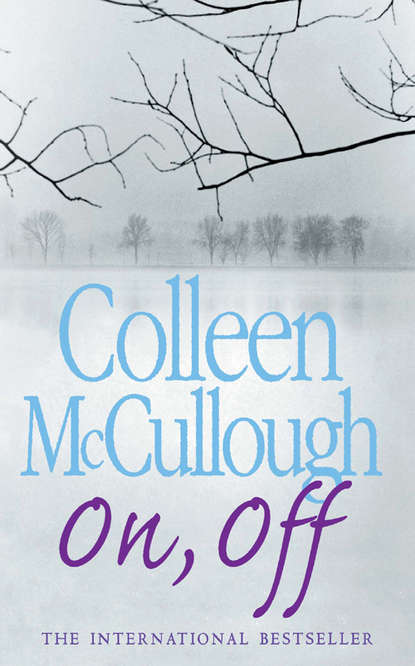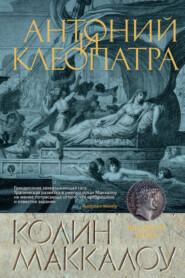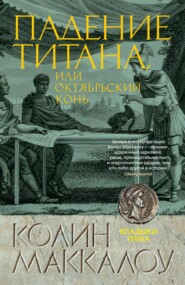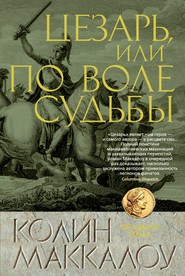По всем вопросам обращайтесь на: info@litportal.ru
(©) 2003-2024.
✖
On, Off
Автор
Год написания книги
2018
Настройки чтения
Размер шрифта
Высота строк
Поля
PART ONE October & November, 1965 (#ulink_6e91ec24-6c77-5891-a166-b671011bc6f1)
Chapter One (#ulink_ac37002e-1425-5d25-9929-2ac969bcff29)
JIMMY WOKE UP GRADUALLY, conscious at first of only one thing: the perishing cold. His teeth were chattering, his flesh ached, his fingers and toes were numb. And why couldn’t he see? Why couldn’t he see? All around him was pitch darkness, a blackness so dense he had never known anything like it. As he grew wider awake he realized too that he was imprisoned in something close, smelly, alien. Wrapped up! Panic set in and he began to scream, to claw frantically at whatever was confining him. It ripped and tore, but when the stygian coldness persisted after he managed to free himself, his terror drove him mad. There were other things all around him, the same smelly kind of restraints, but no matter how he shrieked, ripped, tore, he couldn’t find a way out, couldn’t see a particle of light or feel a puff of warmth. So he shrieked, ripped, tore, his heart roaring in his ears and the only noises his own.
Otis Green and Cecil Potter came into work together, having hooked up on Eleventh Street with a broad grin for each other. Dead on 7 a.m., but wasn’t it great not to have to punch a time clock? Their place of work was civilized, man, no arguments there. They put their lunch pails in the small stainless steel cupboard they had reserved for their own use—no need for locks, there were no thieves here. Then they started the business of their day.
Cecil could hear his babies calling for him; he went straight to their door and opened it, speaking to them in a tender voice.
“Hi, guys! How ya doin’ huh? Everybody sleep well?”
The door was still hissing shut behind Cecil when Otis saw to the least palatable job of his day, emptying the refrigerator. His wheeled plastic bin smelled clean and fresh; he put a new liner in it and pushed it over to the refrigerator door, a heavy steel one with a snap lock handle. What happened next was a blur: something streaking past him as he opened the door, screaming like a banshee.
“Cecil, get out here!” he yelled. “Jimmy’s still alive, we gotta catch him!”
The big monkey was in a state of gibbering frenzy, but after Cecil talked to him a little while and then held out his arms, Jimmy bolted into them, shivering, his shrieks dying to whimpers.
“Jesus, Otis,” Cecil said, cradling the beast like a father his child, “how did Dr. Chandra miss that? The poor little guy’s been locked in the fridge all night. There there, Jimmy, there there! Daddy’s here, little man, you’re okay now!”
Both men were shocked and Otis’s heart had a jelly roll beat to it, but no real harm was done. Dr. Chandra would be pleased as punch that Jimmy hadn’t died after all, thought Otis, returning to the refrigerator. Jimmy was worth a hundred big ones.
Even two cleanliness fanatics like Cecil and Otis couldn’t banish the smell of death from the refrigerator, scrub it with disinfectant and deodorant though they did. The stench, not of decay but of something subtler, surrounded Otis as he flipped the light switch to reveal the chamber’s stainless steel interior. Oh, man, Jimmy had made a regular mess of it! Torn paper bags were strewn everywhere, headless rat carcasses, stiff white hair, obscenely naked tails. And, behind the dozen rat bags, a couple of much bigger bags, torn up too. Sighing, Otis went to fetch more bags from a cupboard and began to make order out of Jimmy’s chaos. The dead rats properly bagged again, he reached in to the chilly chamber and pulled the first of the two big bags forward. It had been rent from top to bottom, most of its contents on full display.
Otis opened his mouth and screamed as shrilly as Jimmy, was still screaming when Cecil erupted out of the monkey room. Then, not seeming to notice Cecil, he turned and ran out of animal care, down the halls, into the foyer, out the entrance, legs opening and closing in a punishing run down Eleventh Street to his home on the second floor of a shabby three-family house.
Celeste Green was having coffee with her nephew when Otis burst into the kitchen; they leaped to their feet, Wesley’s passionate diatribe about Whitey’s crimes forgotten. Celeste went for the smelling salts while Wesley put Otis on a chair. Back with the bottle, she pushed Wesley roughly out of her way.
“You know your trouble, Wes? You always in the way! You didn’t get in Otis’s way all the time, he wouldn’t call you a good for nothin’ kid! Otis! Otis, honey, wake up!”
Otis’s skin had faded from a warm deep brown to a pasty grey that didn’t improve when the ammoniac vapors were jammed under his nose, but he came around, jerked his head away.
“What is it? What’s the matter?” Wesley was asking.
“A piece of woman,” Otis whispered.
“A what?” sharply from Celeste.
“A piece of woman. In the fridge at work with the dead rats. A pussy and a belly.” He began to shake.
Wesley asked the only question that mattered to him. “Was she a white woman or a black woman?”
“Don’t bother him with that, Wes!” Celeste cried.
“Not black,” Otis said, hands going to his chest. “But not white neither. Colored.” He added, slipped forward off the chair and fell to the floor.
“Call an ambulance! Go on, Wes, call an ambulance!”
Which came very quickly, due to two fortunate facts: one, that the Holloman Hospital was just around the corner, and the other, that business was slack this hour of morning. Still very much alive, Otis Green was put into the ambulance with his wife crouched beside him; the apartment was left to Wesley le Clerc.
He didn’t linger there, not with news like this. Mohammed el Nesr lived at 18 Fifteenth Street, and he had to be told. A piece of woman! Not black, but not white either. Colored. That meant black to Wesley, as it did to all the members of Mohammed’s Black Brigade. Time that Whitey was called to account for two hundred years and more of oppression, of treating black people as second rate citizens, even as beasts without immortal souls.
When he’d gotten out of prison in Louisiana he’d decided to come north to Tante Celeste in Connecticut. He yearned to make a reputation as a black man who mattered, and that was easier to do in a part of the nation less prone than Louisiana to throw blacks in jail if they looked sideways. Connecticut was where Mohammed el Nesr and his Black Brigade hung out. Mohammed was educated, had a doctorate in law—he knew his rights! But for reasons that Wesley saw every day when he looked in a mirror, Mohammed el Nesr had dismissed Wesley as worthless. A plantation black, a nobody nothing. Which hadn’t dampened Wesley’s ardor; he intended to prove himself in Holloman, Connecticut! So much so that one day Mohammed would look up to him, Wesley le Clerc, plantation black.
Cecil Potter had soon discovered what sent Otis screeching out of animal care, but he wasn’t a panicky man. He did not touch the contents of the refrigerator. Nor did he call the cops. He picked up the phone and dialed the Prof’s extension, knowing full well that the Prof would be in his office, even at this hour. His only peace happened early in the mornings, he always said. But not, thought Cecil, this morning.
“It’s a sad case,” said Lieutenant Carmine Delmonico to his uniformed colleague and nominal superior, Captain Danny Marciano. “With no other relatives we can find, the kids will have to go into the system.”
“You’re sure he did it?”
“Positive. The poor guy tried to make it look like some stranger busted in, but there’s his wife and her lover in the bed and her lover’s cut up some but she’s mincemeat—he did it. My bet is that he’ll confess later today voluntarily.”
Marciano rose to his feet. “Then let’s get some breakfast.”
His phone rang; Marciano wriggled his brows at Carmine and picked up. Within three seconds the police captain had stiffened, lost all contentment. He mouthed “Silvestri!” at Carmine and commenced a series of nods. “Sure, John. I’ll start Carmine now and get Patsy there as soon as I can.”
“Trouble?”
“Big trouble. Silvestri’s just had a call from the head of the Hug—Professor Robert Smith. They’ve found part of a female body in their dead animal refrigerator.”
“Christ!”
Sergeants Corey Marshall and Abe Goldberg were breakfasting at Malvolio’s, the diner the cops used because it was next door to headquarters in the County Services building on Cedar Street. Carmine didn’t bother walking in; he rapped his knuckles on the glass of the booth where Abe and Corey were washing down hotcakes and maple syrup with big mugs of coffee. Lucky stiffs, he thought. They get to eat, I get to give my report to Danny, now I don’t get to eat. Seniority’s a pain in the ass.
The car Carmine regarded as his own (it was really a Holloman Police Department unmarked) was a Ford Fairlane with a souped up V8 engine and cop springs and shocks. If the three of them were in it, Abe always drove, Corey rode shotgun, and Carmine spread himself and his papers in the back. Telling Corey and Abe took half a minute, the trip from Cedar Street to the Hug less than five.
Holloman lay about halfway up the Connecticut coast, its spacious harbor looking across the Sound to Long Island. Founded by dissenting Puritans in 1632, it had always prospered, and not only because of the numerous factories that lay on its outskirts as well as up the Pequot River. A good proportion of its 150,000 people were connected in some way to Chubb University, an Ivy League institution that admitted itself inferior to none, even Harvard and Princeton. Town and Gown were inextricably intertwined.
Chubb’s main campus lay around three sides of the big Green, its early colonial Georgian and nineteenth century gothic buildings joined by some startlingly modern edifices tolerated only because of the august architectural names associated with each; but there was also Science Hill to the east, where the science campus was located in square towers of dark brick and plate glass, and, way across town to the west, the Chubb medical school.
Because medical schools grew up alongside hospitals, by 1965 they tended to be situated in the worst part of any city; in this respect Holloman was no different. The Chubb medical school and the Holloman Hospital straggled down Oak Street on the southern border of the larger of Holloman’s two black ghettoes, called the Hollow because it lay in a hollow that had once been a swamp. To compound the health care woes, in 1960 the oil reservoirs of East Holloman were relocated at the end of Oak Street on waste ground between I–95 and the harbor.
The Hughlings Jackson Center for Neurological Research sat on Oak Street right opposite the Shane–Driver medical student apartments, 100 for 100 students. Next to the Shane–Driver was the Parkinson Pavilion for medical research. It faced the Hug’s neighbor, the Holloman Hospital, a twelve-storey pile that had been rebuilt in 1950, the same year that saw the Hug go up.
“Why do they call it the Hug?” Corey asked as the Ford swung into the temporary road that bisected a gigantic parking lot.
“First three letters of Hughlings, I guess,” said Carmine.
“Hug? It’s got no dignity. Why not the first four letters? Then it’d be the Hugh.”
“Ask Professor Smith,” said Carmine, eyeing their destination.
The Hug was a shorter, smaller twin of the Burke Biology Tower and the Susskind Science Tower cross-campus on Science Hill; a baldly square, squat pile of dark brick with plenty of big plate glass windows. It sat in three acres of what had used to be slum dwellings, demolished to make way for this monument perpetuating the name of a mystery man who had had absolutely nothing to do with its genesis. Who on earth was this Hughlings Jackson? A question all of Holloman asked. By rights the Hug should have been named after its donor, the enormously wealthy, late Mr. William Parson.
Having no gate key to the parking lot, Abe put the Ford on Oak Street right outside the building. Which had no entrance onto Oak Street; the three men tramped down a gravel path along the north side to a single glass door, where a very tall woman was waiting for them.
It’s like a child’s building block in the middle of a huge room, Carmine thought; three acres is a lot of land for something only a hundred feet per side. And shit, she’s holding a clipboard. Office, not medical. His mind automatically registered the physical details of every person who swam into his piece of the human sea, so it was busy as she drew closer: six-three in bare feet, early thirties, navy pant suit on the baggy side, flat lace-up shoes, mouse-brown hair, a face with a biggish nose and a prominent chin. She’d never have made Miss Holloman ten years ago, let alone Miss Connecticut. Once he halted in front of her, however, he noted that she had very fine, interesting eyes the color of thick ice, which he had always found beautiful.
“Sergeants Marshall and Goldberg. I’m Lieutenant Carmine Delmonico,” he said curtly.














